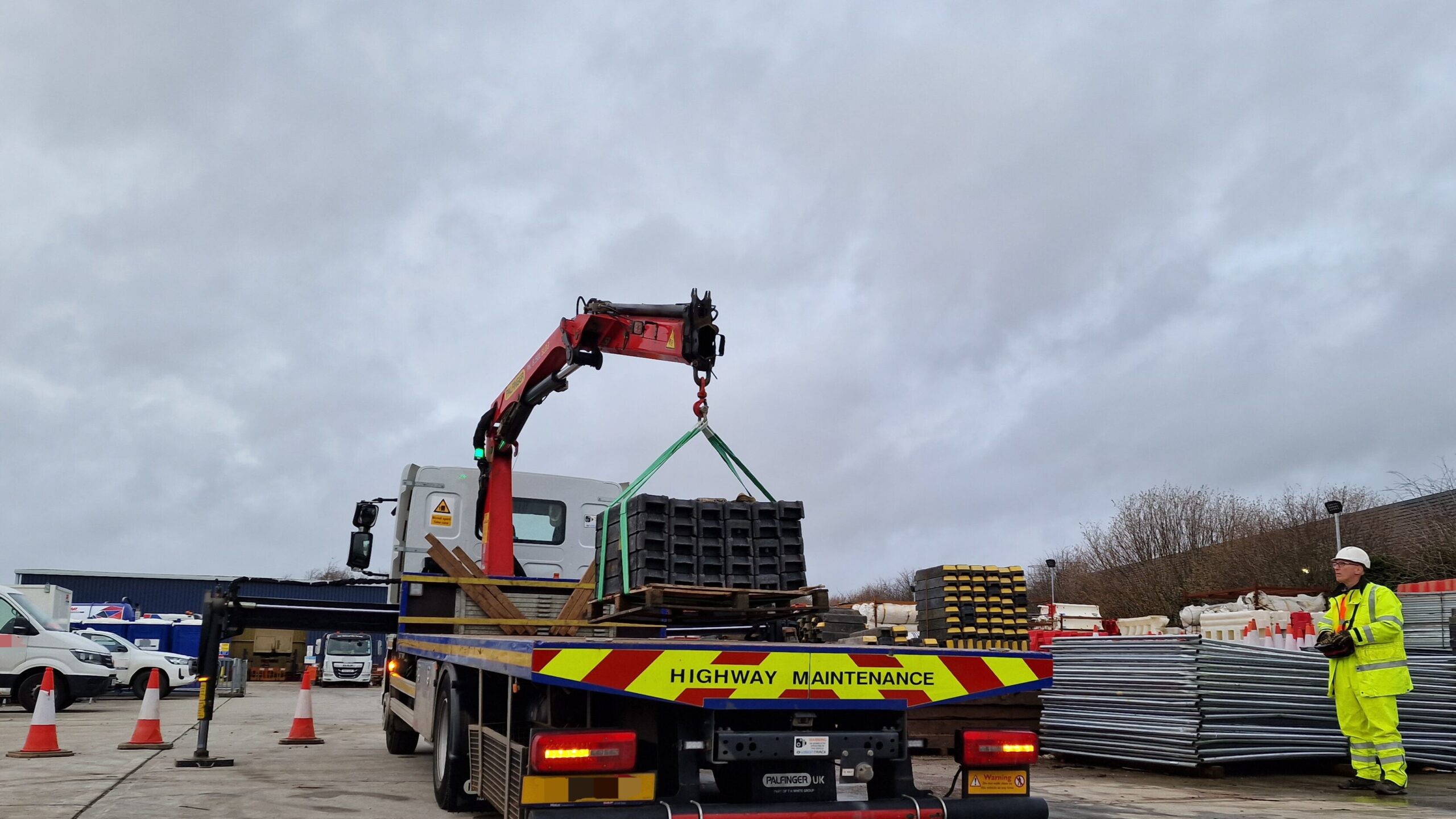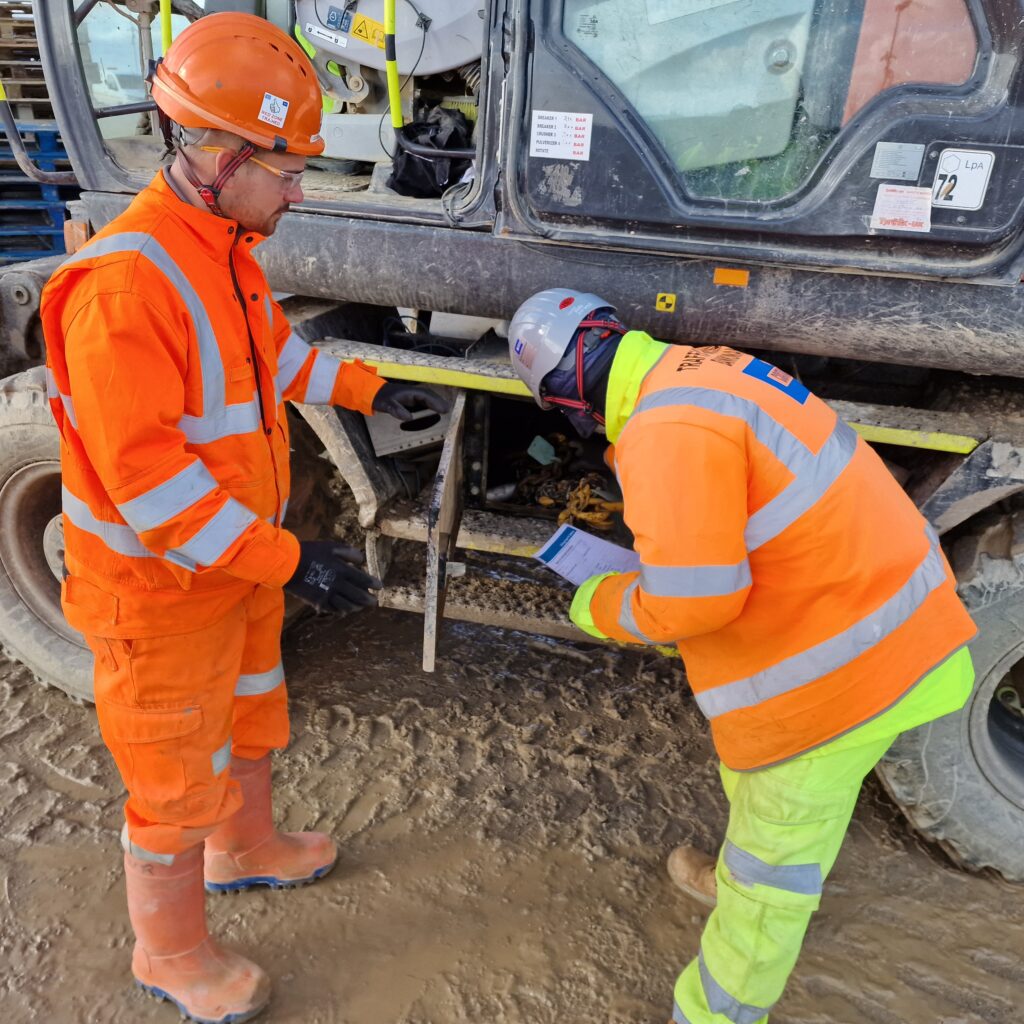RCSC Training is a trading name of Plant & Logistics Training Limited, providing quality Forklift Truck, Plant, Logistics, First Aid and Health & Safety training.
Registered in England and Wales (Company Number 13784172)
Back in 2022, we wrote about the difference between the National Plant Operator Registration Scheme (NPORS) and Construction Plant Competence Scheme (CPCS) card schemes.
We explored the differences between the two schemes to try and help you decide which one was right for you. You can check out that original article here.
However, as is often the case, things have changed! In early 2023, CPCS made some fairly fundamental changes to the way that the scheme operates, so we thought it was only fair that we took another look.

This is possibly one of the biggest changes that CPCS have made to the scheme, with a view to meeting the Construction Industry Training Board (CITB) requirements for Approved Training Organisations (ATOs).
For a number of years leading up to 2023, CPCS did not set out standards in respect of plant training – their focus was instead on the testing alone. This meant, as we outlined in our previous article, that standards of training could vary significantly, depending on the training provider.
However, CPCS have now re-introduced the “trainer” card, with some specific requirements that must be met. Instructors holding a CPCS card will have either an existing recognised instructor qualification for the item(s) of plant they are training on, or a CPCS operator card with 2+ years’ experience. Additionally, they will be required to hold an instructional techniques qualification and construction-related health and safety qualification.
This change brings them much closer in line with the existing NPORS instructor requirements and, in our view, is certainly a positive change.
In addition to the training requirements, CPCS have also made some interesting changes to their testing regime.
Where previously testing could only be carried out at an approved CPCS test centre, this is not necessarily the case after the recent updates. Testing for some – but not all – categories can now be be carried out at the client’s site. Where this is the case, the standard test specifications will still be rigidly enforced.
Having spoken with a number of CPCS testers, general consensus seems to be that meeting the CPCS requirements for on-site testing will be quite challenging, so it remains to be seen how popular an option this will be going forward, but many are welcoming it as a step in the right direction.
There is still a notable difference, between CPCS and NPORS, on the subject of restricted certificates. Something that has proved popular with a number of our clients – and presumably others across various industries – is the ability to carry out NPORS testing that is relevant to the specific application or industry sector. Where the standard testing criteria cannot be met, the card can be restricted accordingly. For example, if an excavator operator needed to use a machine solely for the purpose of loading vehicles from a stockpile, it may be irrelevant to their employer whether they can proficiently dig, backfill and reinstate a trench. CPCS simply do not permit any variation to the test specification, regardless of the intended application.
There is mixed opinion on the CPCS vs NPORS approach here. Some feel that a rigid test specification means a level playing field for everyone entering the industry and obtaining evidence of training. Others would argue that, in some circumstances, the CPCS test specifications are too narrow, and may not be particularly relevant to the candidate, employer or industry specific requirements.
Whilst the basis of the questions are essentially the same, there is also a deviation in the way that the two schemes administer the theoretical knowledge test. NPORS candidates are required to answer five written open questions, followed by 20 multiple choice questions. These are a mixture of category-specific and general health & safety related questions. CPCS tests involve a total of 15 category-specific questions and 25 general questions, all of which are answered verbally and recorded for monitoring purposes.
The differences with testing – particularly the practical tests – are likely to be a significant factor in determining which scheme is most suited to the learner or employer’s needs.

Not much has changed here. From what we can see, the changes to the CPCS scheme are unlikely to have a significant impact on costs either for providers or candidates.
Something that will impact, though, is the expansion of CITB funding availability. Previously, funding available in respect of CPCS testing was more attractive than for other schemes. By opening up grant funding to more card schemes that are able to demonstrate compliance with CITB requirements, employers will benefit from a wider choice when procuring funded training.
Whilst generally considered a positive and welcome step, there are still some unanswered questions for CITB surrounding access to funding for self-employed operators in particular.
We discussed, in our previous article, the shift in the level of recognition for NPORS and CPCS card schemes over the last few years. The two are still very close, with the overwhelming majority of sites accepting either card scheme as evidence of training and/or competence.
There are no changes to report here, either.
CPCS still offer the 2-year “trained operator” and 5-year “competent operator” options, with the latter attainable on successful completion of a relevant NVQ.
This option is also offered by NPORS who also offer a separate “traditional” card, which is often favoured by employers and candidates outside of the construction industry.
NPORS have consistently maintained high levels of service for training providers, candidates and employers, with quick turnaround time on cards and readily available support from their in-house teams.
Historical complaints surrounding delays with CPCS cards seem to have subsided, so it may well be that the issues that we were aware of when we wrote the previous article are now being addressed.
Both schemes also provide information through FAQs on their websites.
In summary, the two card schemes – whilst still different – have moved slightly closer together with the introduction of the most recent changes. The “right” choice for you will depend on a variety of factors and it wouldn’t be accurate to say that either scheme is “better” than the other.
Things to consider:
If the answer is yes, then both CPCS and NPORS would be options to consider. If the answer is no, then NPORS might be a more suitable scheme.
Both schemes now enjoy access to funding for training and testing on many plant and other categories. You can find out more about grants and funding here.
If so, NPORS is more likely to be the scheme for you. However, it is now possible with both schemes for some categories.
With CPCS cards and the NPORS CSCS cards, operators must complete an NVQ to convert their 2-year cards to 5-year cards. This can be a costly option, and there is a certain amount of work that goes into achieving these. If you want to steer clear of NVQs, the NPORS traditional card is the route to take.
The contracts or jobs you bid or apply for may have specific requirements when it comes to evidence of training, so this might be the deciding factor!